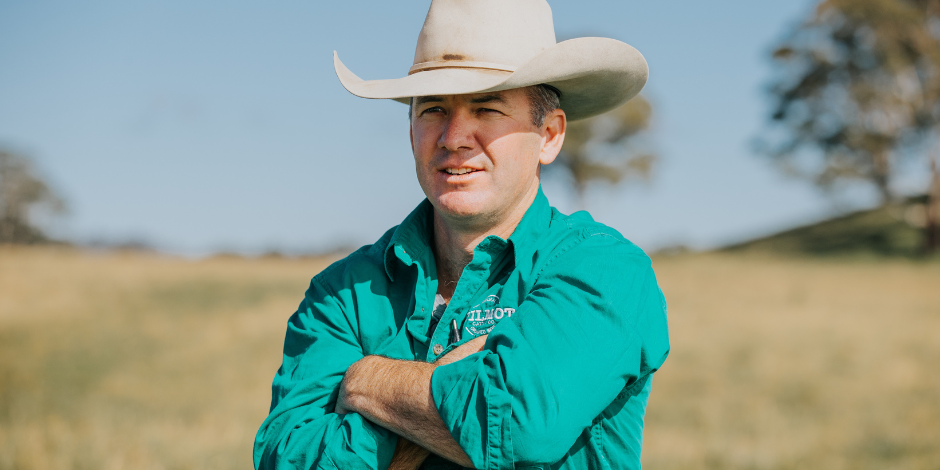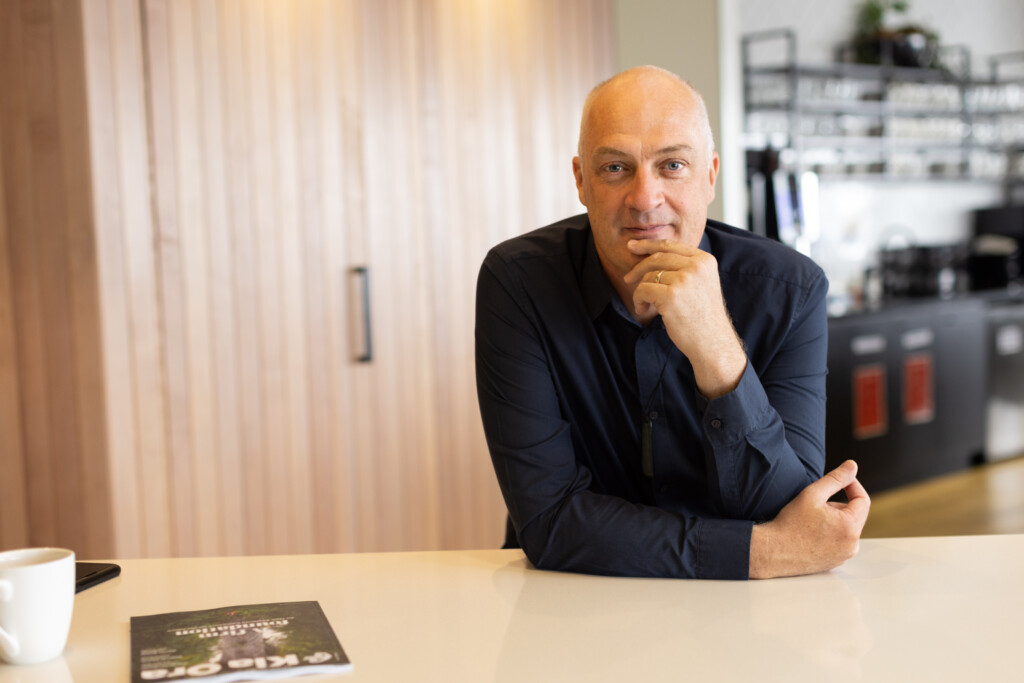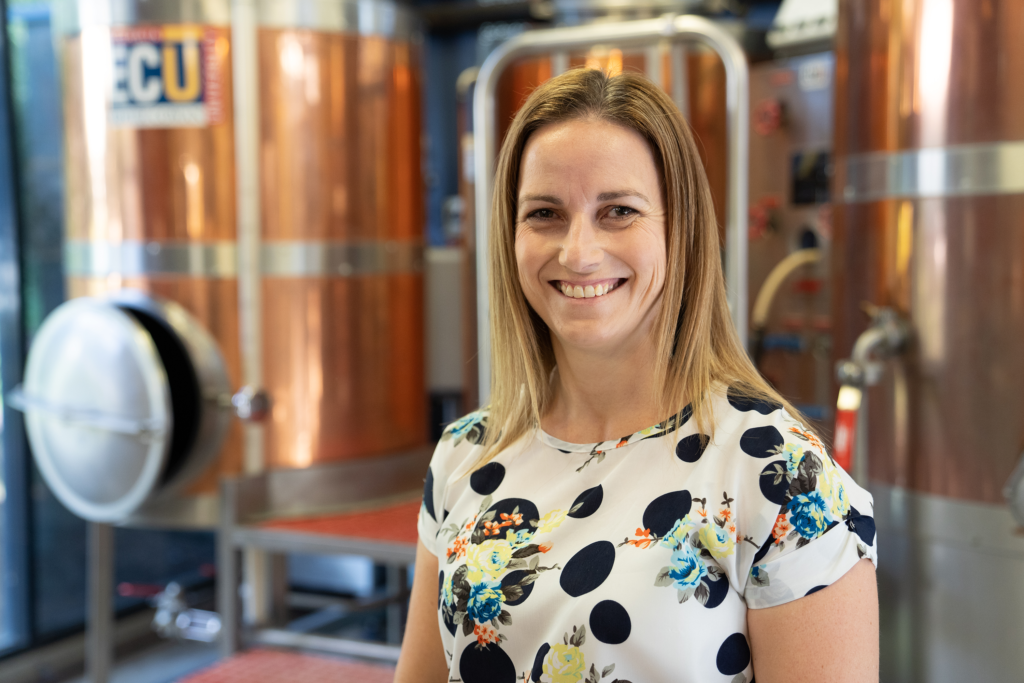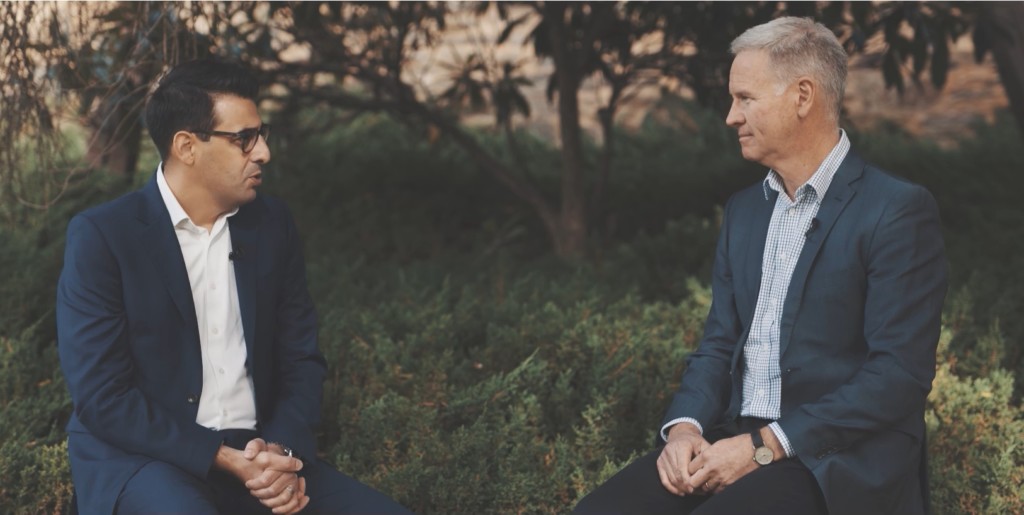Enhancing Australia’s global advantage and driving agrifood tech innovation: A sneak peek at the evokeAG. 2023 program
In the lead up to evokeAG. 2023 – Down to Earth and the launch of the program, we’re giving you a sneak peek at some of the stellar line-up taking to the stage on 21-22 February 2023. To kick things off we asked evokeAG. 2023 speakers Stuart Austin, David Downs, Michelle Colgrave and Michael Macolino about their passion for agrifood innovation as well as Australia's (and South Australia's) global advantage and what will drive the greatest change in agrifood innovation.

Stuart Austin, General Manager, Wilmot Cattle Company
What levers will drive the greatest change for agrifood tech innovation in the next decade: social, environmental or political demands?
There are clear interdependencies between all three. Socially, most people care about protecting the environment which is in turn driving the political conversation. It’s also the same in reverse where the government want to show they are taking climate action and therefore create policy and regulation about how to manage the environment and in turn social implications and benefits.
As a grazier I’m committed to restoring and regenerating the ecological function of the landscape, the environment is my main concern. I would like to see more investment in technology and innovation that drives a resilient agricultural sector that builds natural capital and significantly contributes towards global climate solutions.
Australia can be a global leader in building a climate resilient future, with carbon sequestration a significant part of the solution.
It is clear we need a shift in the way traditional farms operate, and quickly, because the current conventional model isn’t providing the climate resilience we need, and we won’t have farm businesses as we know them in 30 – 50 years’ time.
Rather than government intervention, solutions need to be industry led and where possible using new tools, techniques and technologies. For example, the use of technology in the verification of environmental credits is absolutely crucial, and while there is a great deal of evolution in this space, we need to do more to minimise in-field measurement and utilise technology as a trusted and robust verification of what’s actually happening in-field.
RELATED: Patience and planning pays off for Wilmot Cattle Co’s carbon deal
How can Australia enhance its agritech development and/or commercialisation processes, to support increased adoption and drive value on-farm?
In short, keep it commercially relevant and ensure the product is viable at scale.
Increased adoption and subsequent on-farm value will only occur if our agritech developments produce products that are relevant, useful and valuable.
The key questions for a producer must be how is this technology helping me to deliver a pre-determined outcome on-farm? And what’s the value of that decision vs the cost of utilising the technology.
As a good example, at Wilmot we use Farmbot remote water sensors – which, for $1 a day, ensures our livestock never run out of water.
Not only does technology need to be relevant and useful, but I would also like to see a shift in how we approach research and development by delivering much higher level, complex research that allows for real on-farm change. While individual farm goals will be different, all producers want to build the resilience, productivity and sustainability of their businesses – and the adoption of cutting edge technology and ground-breaking research is vital in order for that to happen at scale.
David Downs, passionate New Zealander, storyteller, and CEO of the New Zealand Story Group

What one thing Australia can learn from the success of ‘brand New Zealand’?
The New Zealand brand is anchored in a deep set of values, relating to care for people and place. Our Māori culture has informed our brand, but ultimately, it’s the thousands of interactions that our exporters, investors, educators, diplomats, politicians, and ordinary citizens have with the rest of the world each year – that’s where the brand comes to life. New Zealand is on a journey to better understand who we are, and our culture helps us to do this. I also see that activity happening in Australia. We can learn from each other, and we know that we have much to learn from our cousins across the Tasman.
What is Australia’s global advantage, with respect to agrifood innovation, and how can we protect that through ‘brand Australia’?
Australia and New Zealand are both countries that think differently – but innovation is at our core. Both countries have cultivated innovation out of necessity, people, had to work with the land to survive, and now have an appreciation of how we need to work in connection with nature, not against it. We are unshackled by centuries of tradition or the constraints of hierarchy – we can both move quickly to make adjustments to how we work with nature to create new ways of feeding the world. Australia and New Zealand can connect indigenous wisdom with an innovative spirit, to offer the world a different way of thinking. Both our brands have this idea of innovation, for purpose – what the world needs.
RELATED: Supercharging innovation: a new approach to old ways in New Zealand
Professor Michelle Colgrave, Protein Lead CSIRO

What are you most passionate about in agriculture and agrifood innovation?
To deliver impact for industry means we need to innovate but with the industry challenges at the forefront of our mind, and by bringing complementary but multidisciplinary teams together to solve these challenges. So, my passion involves a combination of fostering talent and building networks that can provide solutions to transform our agrifood systems.
RELATED: Increased demand for protein good news for Australian producers
What levers will drive the greatest change for agrifood tech innovation in the next decade: social, environmental, or political demands?
It is a combination of all three, however we are in the age of the “conscious consumer” who choose products and support brands that are good for them, and good for the planet. This requires diversity in our food systems and diets, and transparency and accuracy in how products are delivered to the consumer (from sourcing ingredients to processing and distribution). In order to deliver societal, environmental and economic benefits, we will need to bring industry, government and researchers together to co-create healthy and sustainable solutions with the conscious consumer in mind.
Michael Macolino, South Australian Local and Associate Director AgTech at BDO

What are you most passionate about in agrifood innovation?
We live in a time where we are seeing multiple breakthrough technologies reach commercial maturity (cloud, robotics, IoT, synthetic biology, etc.) and all of these have a direct application to agriculture and food. They provide a toolkit to significantly transform our food system, and to be more efficient and effective at providing nutrition around the world.
RELATED: What makes South Australia the state of innovation?
If you were to show international or interstate visitors (interested in agrifood innovation) one or two things in South Australia what would they be?
First off, the University of Adelaide’s Waite research precinct. It is the largest agriculture and food research precinct in the Southern Hemisphere, located just 20 minutes outside of Adelaide.
Secondly, the Northern Adelaide Plains region houses 5,500 hectares of intensive horticulture, in both indoor and outdoor agricultural systems. The area has an extensive (and underutilised) recycled water system, which provides the perfect opportunity for new forms of intensive agriculture such as vertical farming.
Top reasons why Adelaide and South Australia are such a hotspot for innovation?
Here are my top seven reasons:
- South Australia has a long history of research and innovation, and globally recognised institutions like the University of Adelaide.
- The low cost of housing and office space, enables businesses to cost effectively attract talent and scale.
- Ease of movement across the city and into the regions enabling connectivity between people and organisations.
- Strong investment from the South Australian Government in initiatives such as Lot Fourteen, the SA Venture Capital Fund, Department of Primary Industries and Regions’ AgTech demonstration sites, _SOUTHSTART (plus more).
- We now have a second and third wave of successful entrepreneurs in the state. These entrepreneurs are supporting the growth of the startup innovation ecosystem and investing in early-stage innovation.
- Recognition from investors and VCs as an innovative state.
- Wine, so much amazing wine.
evokeAG. 2023 will bring the brightest and the best together to talk about global agrifood innovation and tech. Hear from 100 + speakers like Stuart, David, Michelle and Michael as they explore how innovation and technology collide, intersect, connect, translate, complement, and challenge our most important assets – our people, our farms, our soil, our water and our Earth.
Tickets for evokeAG 2023 Down to Earth are now on sale here.
